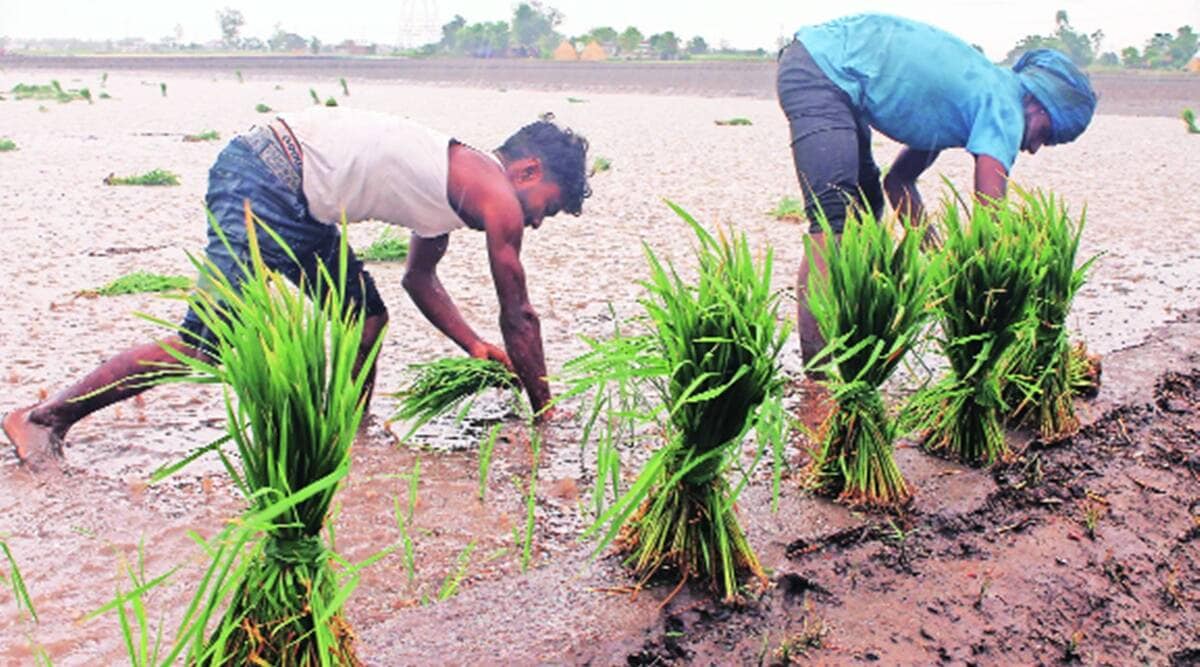 This kharif season, farmers across the country have dumped pulses like tur/urad and instead embraced oilseeds and cotton. (File)
This kharif season, farmers across the country have dumped pulses like tur/urad and instead embraced oilseeds and cotton. (File)A decrease in pulses acreage has raised concerns at the government level of an imminent price rise in the retail markets. Consumer side interventions, like imports and declaration of stocks, have been pushed into place with more such moves in the pipeline which traders feel will affect farmers’ price realisation in the upcoming pulses marketing season.
This kharif season, farmers across the country have dumped pulses like tur/urad and instead embraced oilseeds and cotton. Lower realisations of the former and a delay in the monsoon rains along with exceptionally good prices the latter fetched is the main reason for this shift. Most farmers have also expressed reservations about future government moves which they feel would affect their price realisation from pulses.
Sowing figures provide enough proof of the shift as this kharif, the total pulses acreage in the country is 125.57 lakh hectares as compared to 132.65 lakh hectares last year (data as of August 19, Source: National Food Security Mission’s web portal).
Urad (35.10/37.21 lakh hectares) moong (32.40/33.96 lakh hectares) and tur (43.38/46.74 lakh hectares) have all reported lower sowing. Barring Rajasthan, all other pulses-growing states, like Maharashtra, Karnataka and Madhya Pradesh, have seen farmers weaning away from pulses and going for crops like soyabean and cotton. Both soyabean (119.54/119.04 lakh hectares) and cotton (123.09/116.15 lakh hectares) have reported increased sowing.
Subscriber Only Stories
With elections to states like Gujarat likely to be held towards the end of the year, lower than the expected harvest of pulses can lead to price rises. Already tur, the major kharif crop, has seen good price escalation. At Latur’s wholesale market in Maharashtra, the average trade price of the pulse is Rs 8,006/quintal, which is higher than the minimum support price (MSP) of Rs 6,600. The crop condition being good, the farmers are keeping their fingers crossed for a decent harvest later in the year.
However, with sowing being low, the Centre has already stepped in to control the prices. On August 12, the government directed the states and Union territories to ensure stockholders declare their stocks. “There are reports that some sections of stockists and traders are resorting to restricted sales in an attempt to create artificial scarcity to push the price upward. The retail price of tur has been on (an) upward trend from (the) second week of July 2022 following the slow progress in kharif sowing as compared to last year due to excess rainfalls and water logging conditions in parts of major tur growing states of Karnataka, Maharashtra and Madhya Pradesh,” the release read.
The release also said the government is closely watching the overall availability and prices of pulses in both overseas and domestic markets to preempt measures in event of an unwarranted price rise. “On top of the sufficient overall availability of pulses in the domestic market, the government is currently holding about 38 lakh tons of pulses which are being released in the market to further augment the stocks available in the market,” the release added.
On August 8, National Cooperative Consumers Federation (NCCF) floated tenders for the import of 2,000 tonnes of urad from international markets. Both these measures, traders say, are consumer-centric and efforts towards keeping prices down. “However in case the crop gets affected due to unseasonal rains, these efforts would be in vain given the supply-demand mismatch,” said a trader from Latur.